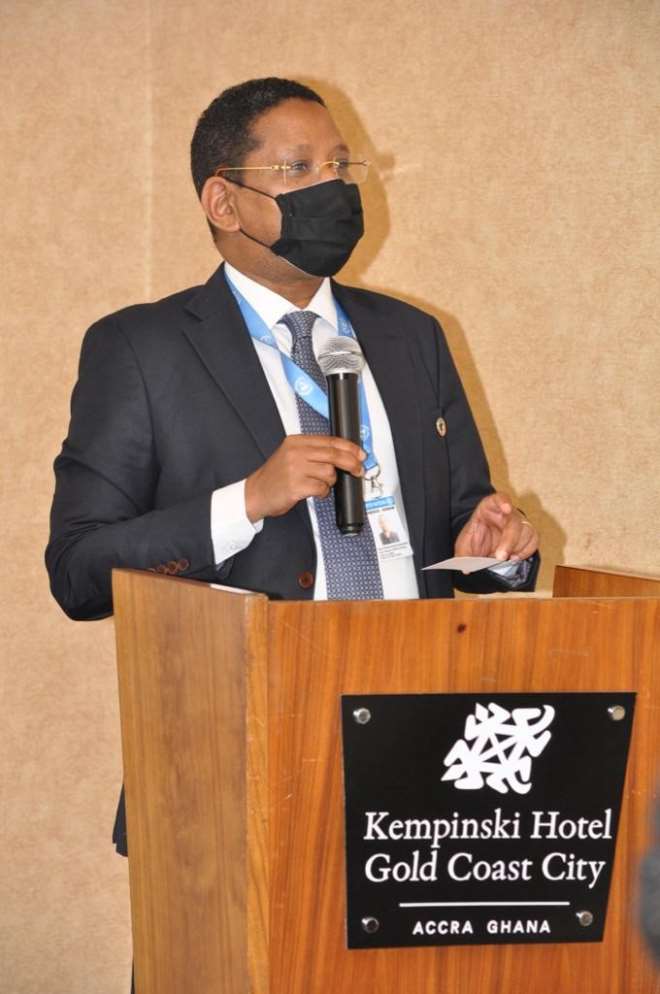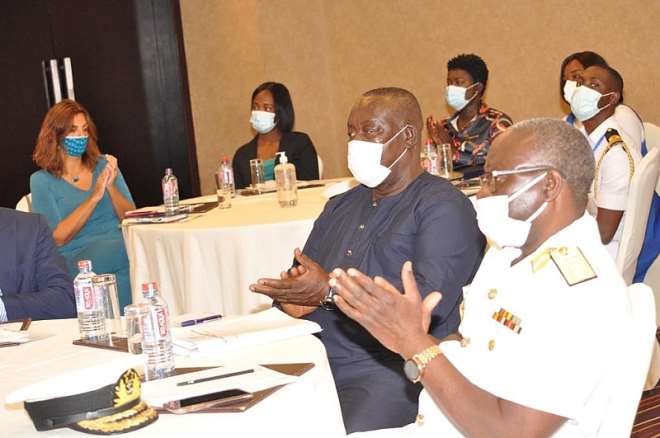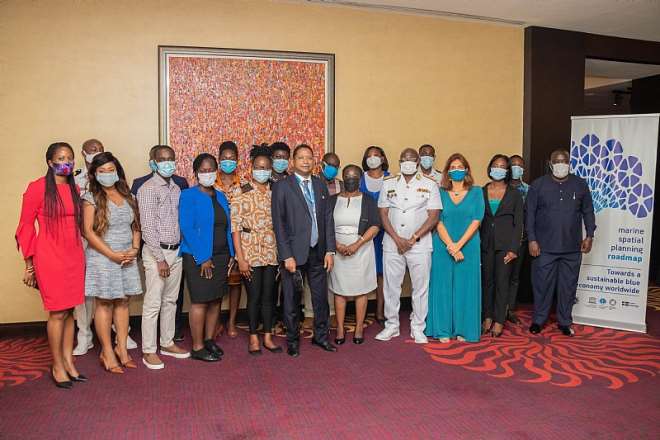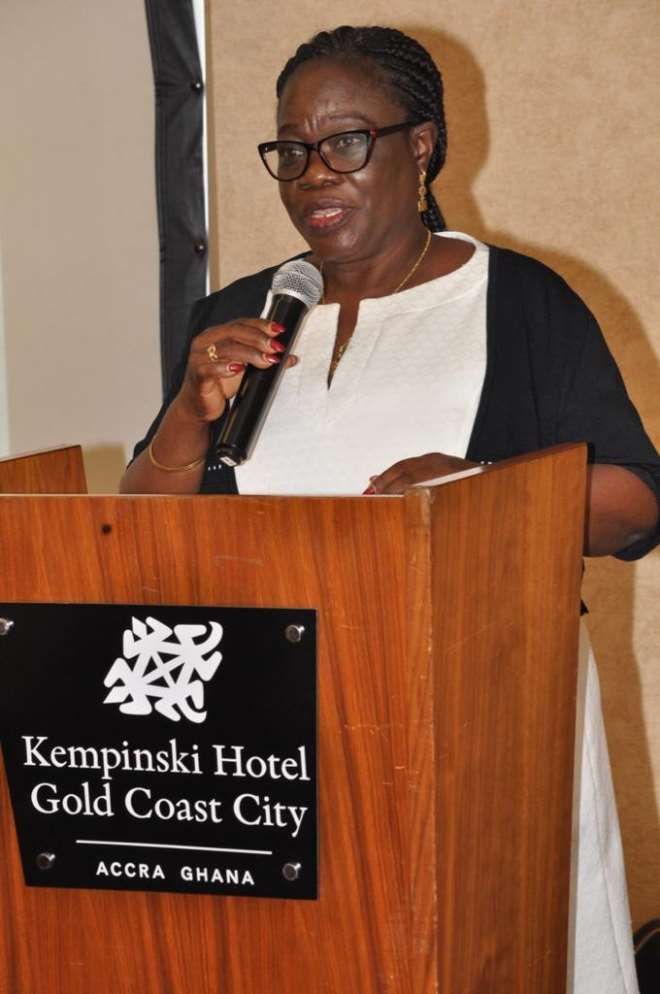Marine spatial planning (MSP) can be defined as a public process of analyzing and allocating the spatial and temporal distribution of human activities in marine areas to achieve ecological, economic and social objectives that have been specified through a political process.
Although the adoption of the MSP concept has gradually increased worldwide, some regions and countries still need support to adopt or fully implement it. In view of this, the Intergovernmental Oceanographic Commission of UNESCO (UNESCO-IOC) and the European Commission adopted in March 2017, a Joint Roadmap to accelerate maritime spatial planning processes worldwide. Because of this successful partnership, the International Forum for Marine Spatial Planning (MSPforum) and the MSP global Initiative were established in 2018.
As part of the MSP global initiative, UNESCO-IOC collaborated with the Gulf of Guinea Maritime Institute, to organize the “Marine Spatial Planning and Sustainable Blue Economy Development” national workshop at the Kempinski Hotel, in Accra, on 22 October 2020. The workshop was organized to disseminate information and knowledge on Marine Spatial Planning and Blue Economy concepts among relevant stakeholders. There were 20 participants at the workshop comprising 50 per cent women and 50 per cent men. The stakeholders represented include the Ministry of Environment, Science, Technology and Innovation(MESTI); Ghana Ports and Harbours Authority; Ghana Maritime Authority; Regional Maritime University; Environmental Protection Agency; Land Use and Spatial Planning Authority; Centre for Scientific and Industrial Research - Water Research Institute; European Commission, and Civil Society Organizations.
Mr. Abdourahamane Diallo, the UNESCO Representative to Ghana gave a welcome address. In his speech, he gave a brief background on UNESCO-IOC and the MSP global initiative. He expressed his gratitude to all participants for attending the workshop and encouraged all stakeholders to support Ghana’s Marine Spatial Planning process.
Mrs. Cynthia Asare Bediako, the Chief Director of the MESTI, gave a keynote speech. In her speech, she indicated MSP as one of the tools that could be adopted to promote or create a practical way of using the marine space and its accompanying resources, both spatial and temporary to prevent over exploitation and reduce conflict among various interest groups. She informed participants that two institutions under the MESTI (the Environmental Protection Agency and the Land Use and Spatial Planning Authority) are currently involved in developing a Marine Spatial Framework for four coastal districts in the Western Region of Ghana. Mrs. Bediako pledged the ministry’s leadership and guidance to its sector agencies, to ensure the comprehensive planning of Ghana’s marine environment and promote the sustainable use of its resources.
The participants were engaged through PowerPoint presentations and discussions. They also undertook group exercises aimed at promoting stakeholder cooperation, identifying major issues to be addressed in Ghana’s MSP, and determining recommendations to address current and potential challenges in developing Ghana’s blue economy.









 We’ll protect state wealth from opaque deals – Prof Jane Naana
We’ll protect state wealth from opaque deals – Prof Jane Naana
 Mauritania president says running for second term in June polls
Mauritania president says running for second term in June polls
 I won't ever say I was a mere driver’s mate' — Prof. Opoku-Agyemang
I won't ever say I was a mere driver’s mate' — Prof. Opoku-Agyemang
 2024 polls: 'EC struggling to defend credibility'— Prof. Opoku-Agyemang
2024 polls: 'EC struggling to defend credibility'— Prof. Opoku-Agyemang
 Akufo-Addo gov't's 'greed, unbridled arrogance, unrestrained impunity, sheer dis...
Akufo-Addo gov't's 'greed, unbridled arrogance, unrestrained impunity, sheer dis...
 Election 2024: Ghana needs an urgent reset, a leadership that is inspiring – Ma...
Election 2024: Ghana needs an urgent reset, a leadership that is inspiring – Ma...
 Partner NDC to rollout a future of limitless prospects – Prof Jane Naana Opoku-A...
Partner NDC to rollout a future of limitless prospects – Prof Jane Naana Opoku-A...
 NPP will remain in gov’t till Jesus comes — Diana Asamoah
NPP will remain in gov’t till Jesus comes — Diana Asamoah
 Sunyani Technical University demands apology from former SRC president over sex-...
Sunyani Technical University demands apology from former SRC president over sex-...
 'Dumsor' was resolved by Mahama but ‘incompetent' Akufo-Addo has destroyed the g...
'Dumsor' was resolved by Mahama but ‘incompetent' Akufo-Addo has destroyed the g...
